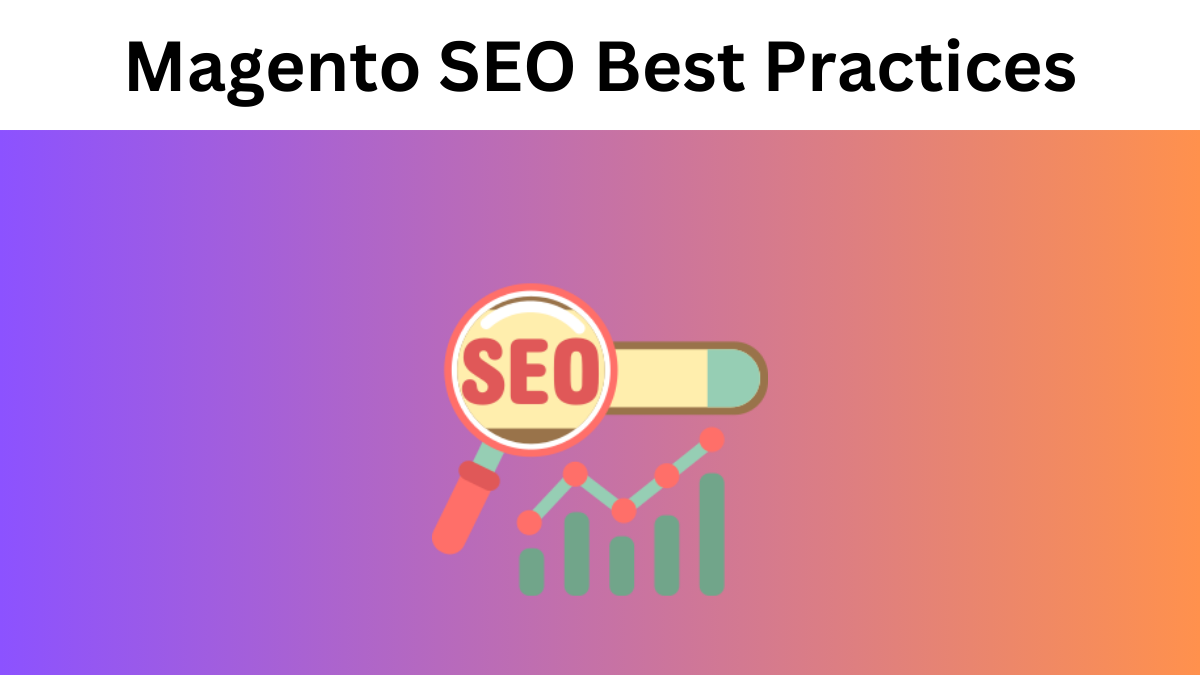Magento SEO Best Practices: Boosting Your Ecommerce Store’s Visibility
In today’s digital commerce realm, SEO isn’t just a luxury—it’s a necessity. Ecommerce platforms have burgeoned in both number and sophistication, offering merchants ample options to propel their online ventures. Among these platforms, Magento emerges not just as a popular choice, but a formidable one. It’s uniquely tailored to provide an arsenal of features for the ecommerce domain, making it a robust solution for merchants. However, this same complexity necessitates a specialized approach to SEO. Not every general SEO guideline applies seamlessly to Magento.
Contents
Hence, understanding and deploying Magento-specific SEO practices is pivotal for maximizing an online store’s visibility. With Magento’s ascendancy in the ecommerce sector, ensuring optimal SEO practices tailored to its nuances can significantly influence a brand’s digital success.
Essential Magento Settings for SEO
Magento’s innate configurations are a testament to its commitment to SEO. Right out-of-the-box, it brings forth an array of settings tailored to enhance a store’s search engine prominence. Central to this is the pivotal role of unique product meta titles and descriptions. Generic or repetitive meta details not only dilute a brand’s identity but can also hamper its search engine standing. Additionally, Magento astutely incorporates canonical tags—a critical asset in combating the age-old issue of duplicate content. Properly setting and utilizing these tags ensure that search engines accurately identify and prioritize the original content, sidestepping potential ranking penalties. These nuances, while foundational, are integral to a Magento store’s SEO health.
Optimizing Magento URL Structures
The very anatomy of a URL can speak volumes about a page’s content, especially to search engines. SEO-friendly URLs are not merely aesthetic; they’re functional, serving as clear indicators of a page’s focus. Magento champions this with its URL rewrite management feature. By allowing merchants to edit URLs to be concise and keyword-rich, Magento ensures that products and categories are discoverable. But this capability is a double-edged sword. While it’s tempting to overhaul URLs frequently, such changes, if not managed with redirects, can lead to broken links—a cardinal sin in the SEO world. Thus, while Magento’s URL capabilities are potent, they demand a judicious approach. Ensuring a balance between user-friendly URLs and consistent link structures is paramount.
Speeding Up Your Magento Store
In the cutthroat world of ecommerce, every second counts—literally. A sluggish website isn’t just a user experience blunder; it can substantially mar your SEO rank. Search engines prioritize sites that load swiftly, deeming them more user-friendly. Magento, cognizant of this, provides various tools and settings to fine-tune a store’s performance. Among these, caching emerges as a cornerstone. Magento’s caching mechanisms, when optimally configured, can drastically reduce page load times, offering users a seamless shopping experience. Yet, the journey doesn’t end here. Images, often the heaviest assets on a page, require special attention. Magento-specific image optimization techniques can compress these visuals without compromising their quality. By harmonizing speed-enhancing practices with Magento’s capabilities, merchants can ensure their store isn’t just swift but also SEO-optimized to the hilt.
Enhancing Mobile SEO for Magento
Mobile commerce is no longer an adjunct; it’s at the forefront of the ecommerce evolution. With the majority of online shoppers accessing stores via mobile devices, ensuring a mobile-optimized Magento store is crucial. But mobile SEO isn’t just about resizing for smaller screens. Magento offers the choice between responsive design and mobile-specific themes, each with its advantages. The former ensures fluidity across devices, while the latter caters to mobile users with a dedicated experience. Beyond design, the mobile user experience plays an integral role in SEO. Slow load times, hard-to-click elements, or a cluttered design can repel users and affect search engine rankings. Harnessing Magento’s mobile tools while keeping a keen eye on user experience is key to mobile SEO mastery.
Leveraging Magento Extensions for SEO
The sheer dynamism of Magento lies not just in its core capabilities but also in its vast ecosystem of extensions. This realm of add-ons allows merchants to elevate their store’s functionality, often in nuanced ways tailored to their specific needs. Especially for SEO, several extensions can be transformative. Magento 2 SEO Extension can help refine meta details, optimize images, manage redirects, and even enhance schema markups. Yet, there’s a caveat. Every extension added carries a performance overhead. Striking the right balance between utility and efficiency is a delicate art. It’s essential to weigh the SEO gains of an extension against its impact on site speed. For merchants grappling with these decisions, external expertise can be invaluable. Firms like the Elogic ecommerce development agency specialize in optimizing Magento stores, ensuring they harness extensions effectively without compromising performance.
Conclusion
In the intricate tapestry of ecommerce, SEO remains a cornerstone, dictating visibility, traffic, and, ultimately, sales. Magento, with its multifaceted features, presents both opportunities and challenges in the realm of SEO. From its innate configurations to the potential enhancements via SEO extensions, it offers a broad canvas for merchants to paint their SEO strategies. Yet, as with any powerful tool, its true efficacy is realized through informed and consistent application. To stay ahead, it’s imperative to regularly revisit and recalibrate one’s Magento SEO tactics, ensuring alignment with evolving search engine algorithms and user behaviors. The journey of SEO is unending, but with the right practices and persistent effort, Magento merchants can solidify their digital footprint, leading their brands to unparalleled online prominence.
